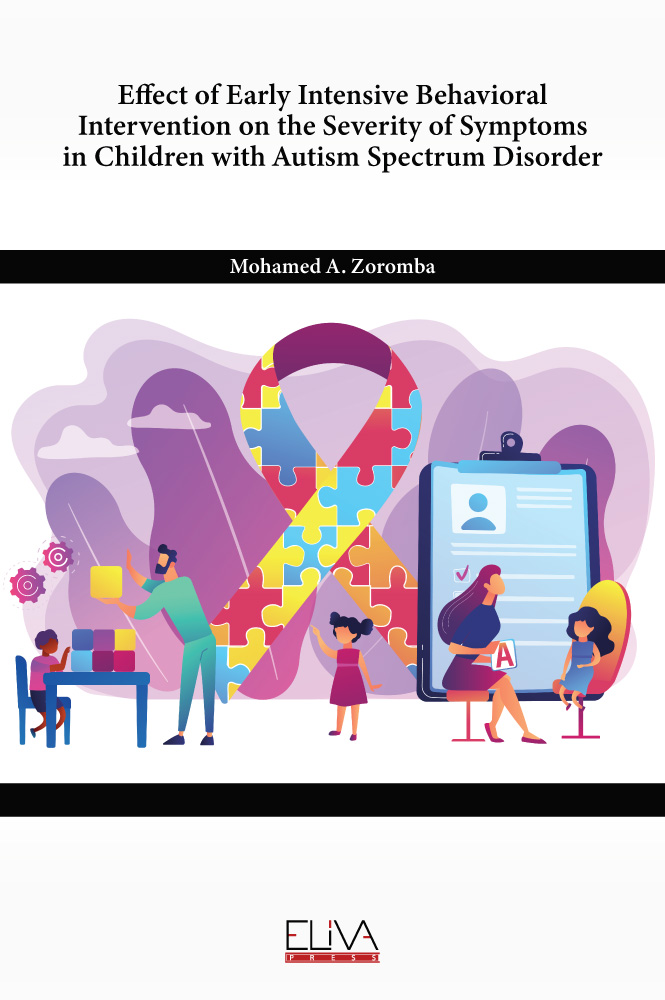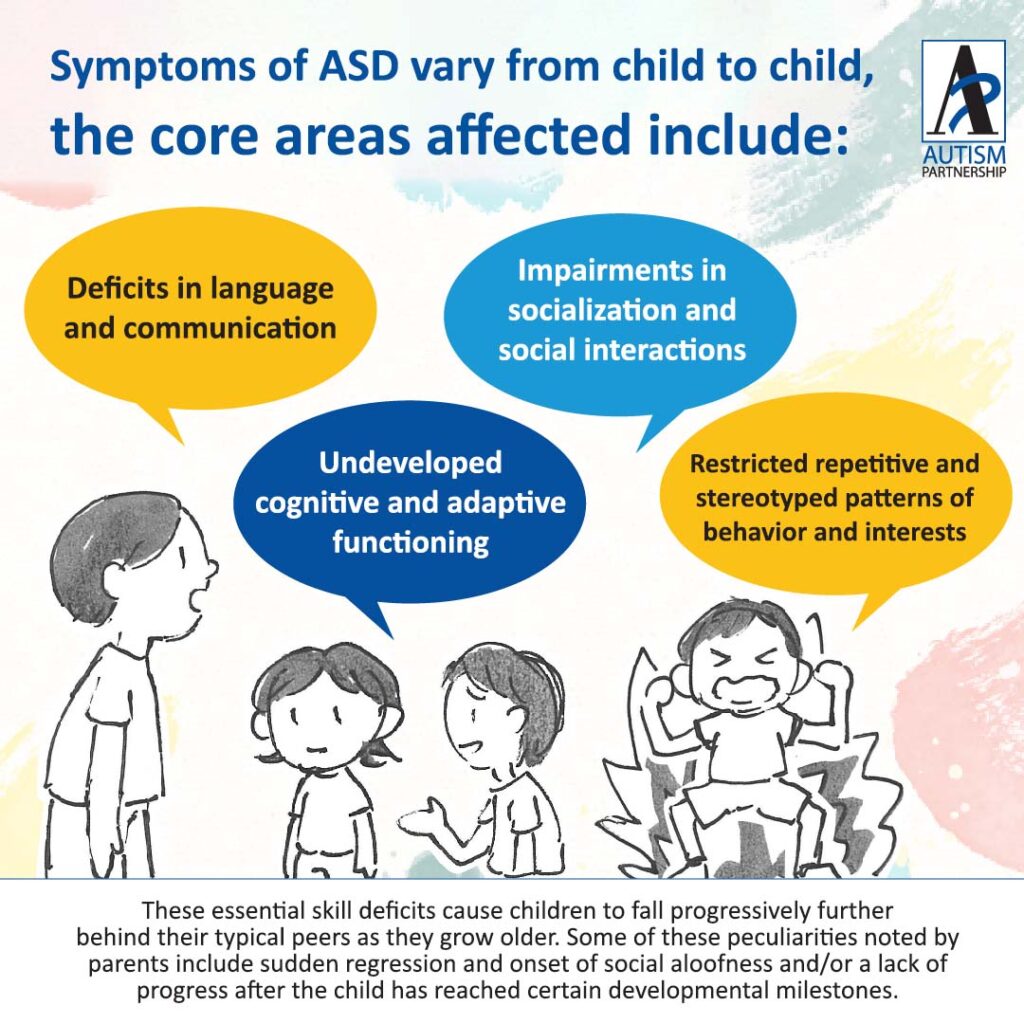Key Indications and Signs to Acknowledge in People With Behavior Autism
When you come across someone with behavioral autism, identifying crucial signs and symptoms is important. In addition, sensory level of sensitivities can lead to overwhelming experiences.
Obstacles in Social Communications
When you connect with a person on the autism range, you could see they struggle with social signs and communication. These difficulties can make social communications feel frustrating for them.
When they do engage, they may talk concerning their rate of interests in fantastic detail without discovering if you're interested. Understanding these difficulties can aid you come close to interactions with empathy and persistence, cultivating a more comfortable environment for both of you.
Problem With Verbal and Non-Verbal Interaction

Non-verbal communication can be even extra tough. You may see a lack of eye contact or limited use gestures, which can make communications really feel unpleasant. Facial expressions may not constantly line up with the conversation, bring about confusion about their feelings. Recognizing these signs is important, as it assists you far better support and involve with individuals on the autism range. By comprehending their interaction difficulties, you can cultivate more significant links and supply a more helpful setting.
Repeated Behaviors and Routines
Interaction obstacles often go along with various other indications of autism, such as recurring actions and a strong preference for regimens. You might observe that people with autism commonly participate in certain, repeated actions, like hand-flapping, rocking, or repeating expressions. These habits can give convenience and a sense of control in a commonly overwhelming world.
When they comply with an organized schedule,Routines are just as important; lots of people thrive. You may find that changes to these routines can result in considerable distress. For instance, if they have a day-to-day routine of consuming morning meal at a details time or adhering to a certain route to institution, any kind of disturbance can cause anxiety.
Acknowledging these patterns helps you understand their actions and give assistance. By accommodating their need for routine and permitting recurring actions, you can produce a much more comfortable environment that relieves their difficulties.
Sensory Sensitivities

Usual Sensory Triggers
Sensory level of sensitivities can significantly impact every day life for individuals with autism, as particular stimuli often activate frustrating reactions. Usual sensory triggers include loud noises, intense lights, and strong scents. You might observe that abrupt noises, like alarms or alarms, cause anxiety or distress. Likewise, fluorescent illumination in shops can feel extreme and uncomfortable. Textures can also play a substantial duty; rough materials or particular food textures might be intolerable for you. In addition, crowded places can bewilder your senses, making it hard to loosen up or focus. Comprehending these triggers can assist you handle your environment better. By understanding what influences you, you can take actions to decrease discomfort and improve your daily experiences.
Behavior Actions Clarified
Comprehending your behavioral feedbacks to sensory level of sensitivities is necessary, as they usually disclose just how you connect with the globe. You might observe that particular audios, lights, or appearances overwhelm you, resulting in anxiety or pain. When confronted with these stimulations, you could take out, cover your ears, or perhaps respond boldy. These reactions aren't just traits; they're your method of coping with overstimulation. You might likewise find on your own seeking certain sensory experiences, like deep stress or peaceful environments, to help ground on your own. Recognizing these patterns aids you comprehend your needs far better and can direct just how you interact them to others. By recognizing your sensory sensitivities, you can function towards creating a setting that feels more comfy and convenient for you.
Coping Strategies Introduction
Identifying your sensory level of sensitivities is simply the initial action; currently it's time to discover coping approaches that can aid you take care of those experiences effectively. Start by creating a sensory toolkit tailored to your needs. Establishing an organized regimen can also offer predictability, lowering anxiety around sensory overload.
Limited Rate Of Interests and Focus
While lots of individuals create a variety of rate of interests, those with autism usually show limited interests and an extreme focus on certain topics. You could see that a person with autism can spend hours delving into their favorite topic, whether it's a particular kind of train, a details flick, or a clinical idea. This intense focus isn't simply a hobby; it can come to be a main part of their identification and social communications.
You might find that discussions revolve around these rate of interests, and they might have a hard time to involve in more comprehensive topics. By recognizing and acknowledging these limited passions, you can foster a helpful setting where they feel valued and comprehended, permitting for more purposeful links and interactions.
Emotional Guideline Difficulties
People with autism usually encounter difficulties in emotional policy, which can be influenced by their extreme concentrate on certain rate of interests. You could notice that when an individual is deeply taken part in a preferred activity, they can experience solid emotions, whether excitement or frustration. When points do not go as planned., this intensity occasionally makes it tough for them to move gears or handle their sensations - Autism more Behavioral Therapy.

Irregularity in Developing Turning Points
When it comes to developmental turning points, you'll see that individuals with autism typically reveal a vast range of irregularity. You could see a child succeed in language abilities however struggle with social communications.
It's important to acknowledge that each person's trip is distinct. Some may create intricate abilities early, only to deal with challenges in the future. Others might take longer to accomplish standard landmarks yet after that flourish in particular areas. Observing these patterns can assist you comprehend their strengths and requires much better.
Regularly Asked Inquiries
Just How Is Autism Identified in Children and Grownups?
To identify autism in kids and adults, professionals assess habits, interaction abilities, and social communications. If an individual fulfills the requirements for autism range disorder., they typically utilize standard tests, interviews, and monitorings to identify.
Exist Different Kinds of Autism Spectrum Disorders?
Yes, there are various kinds of autism spectrum problems, including Asperger's disorder and prevalent developmental disorder-not or else specified. Each type differs in seriousness and you could check here features, so comprehending these differences can help you much better assistance individuals with autism.
What Treatments Work for People With Autism?
When thinking about reliable therapies for individuals with autism, you'll locate choices like Applied Habits Evaluation, speech therapy, and work treatment. Each technique can assist improve interaction, social skills, and everyday working customized to private demands.
Can People With Autism Lead Independent Lives?
Yes, people with autism can lead independent lives. With the ideal assistance, skills training, and resources, you can aid them establish self-sufficiency, handle day-to-day jobs, and flourish in numerous environments, cultivating their independence.
Just How Can Families Assistance Enjoyed Ones With Autism?
You try this out can sustain your loved ones with autism by producing a structured environment, motivating their passions, exercising perseverance, fostering communication, and promoting social skills. Celebrate their success, despite how little, and construct an encouraging community.
Although numerous people on the autism range can understand and utilize language, they frequently deal with substantial obstacles with both non-verbal and spoken interaction. Identifying these signs is vital, as it helps you much better support and engage with individuals on the autism spectrum. You could see that people with autism usually involve in certain, repeated actions, like hand-flapping, shaking, or duplicating phrases.Sensory sensitivities can considerably impact day-to-day life for people with autism, as specific stimuli often set off overwhelming reactions.When it comes to developing landmarks, you'll discover that individuals with autism commonly reveal a large range of variability.